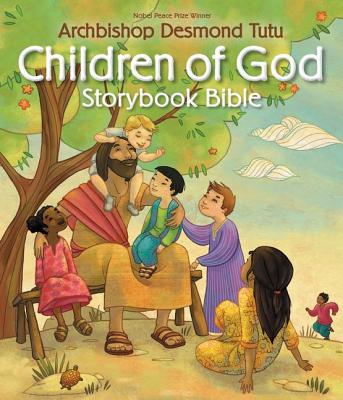Beloved neighbor Fred Rogers was born on March 20. Some will celebrate it as Mister Rogers Day. Here is a sermon reflecting on Jesus’ way of being a neighbor. It’s a new version of a sermon I never got to preach when the COVID-19 pandemic hit in March of 2020. Fred learned much of what he knew about neighboring from Jesus, and we can, too.
A Sermon on John 4:1-42
In March of 2020 I had neighboring on my mind. Several of us had just about finished reading the book Neighborhood Church together, and we were looking forward to talking more about what we and Morton Church could learn from its insights. What’s more, Rebecca Ball and I had just watched the Tom Hanks movie about Mr. Rogers together, A Beautiful Day in the Neighborhood. Fred Rogers was a good neighbor, and he had much to teach about neighboring. I couldn’t wait to share with you all some of what Rebecca and I had seen. And lo and behold, the lectionary scripture calendar for the third Sunday in Lent called us to look at the Samaritan woman at the well story in John 4, where Jesus is a neighbor, welcoming her and the townspeople as neighbors. I was psyched. I had that sermon all ready to go.
And then COVID invaded, and suddenly the best way to care for our neighbors was the stay away from them. It was the only means we had to try to slow and stop the virus. We canceled worship that Sunday, March 15, but the following Sunday we were all back together virtually on Zoom as we are today. Faced with COVID lockdown, however, how could I preach that sermon about making contact with neighbors? I sure couldn’t preach it the way it was written. It seemed it would have to wait. I hoped the way would be clear to preach it in the not too distant future, maybe a matter of weeks, after Easter, perhaps?
Well, here it is almost two years later, COVID is still a threat, and we still have big safety concerns about interacting with neighbors. And because of all the ugly and UNneighborly behavior we have witnessed these last two years, not to mention in the years before, it seems like making neighborly connections is needed now more than ever. The way of neighbor Jesus is needed now, more than ever. Maybe that neighbor sermon shouldn’t wait any more.
But my spiritual GPS is not working well right now. It’s being slow to boot up. GPS is that thing that tells you the steps to take to get somewhere, with spiritual GPS being a sense of direction towards people and places needing the touch of Jesus. Mine is sort of stuck right now, like that little circle going round and round on the computer screen.
Spiritual GPS told Jesus that he had to travel through Samaria, even though he could have geographically recalculated the route as just about everybody else did and go around it. Jesus was interested in that neighborhood and those neighbors.
Tired and thirsty, Jesus sat down at a well outside a Samaritan town called Sychar. And while his disciples went into town to buy lunch, Jesus made a connection with a woman through his own simple human need for water. She came to draw water, and he asked her to draw some up for him and let him drink from her jar. She was astounded. What was a Jewish man doing talking to a Samaritan woman and asking for a drink from her cup, a Samaritan cup? Didn’t he think both she and her cup were unclean?
Well, actually, no. Jesus saw her as a neighbor, and he saw that her soul was thirsty. He saw that, like everybody, this woman had a story, and that her story was filled with pain. Jesus could have commented on the weather, taken a drink and left it at that. Instead, he soon had her reflecting on her experience, and on what living water is.
This nameless woman had been married five times, and was now in a relationship with a sixth man. We should not be quick to conclude that she was damaged goods or trashy somehow. Remember that in those days women were almost always dependent legally and economically on a man, either a husband or a male relative. She could have been widowed, with few or even no relatives. Or she could have been cast aside because men were free to divorce their wives at any time for almost any reason, while women had no right to initiate a divorce at all. Here’s what I think is a big possibility: the story doesn’t mention any children, so perhaps this woman had not been able to conceive a child. Infertility was thought to be a source of great shame for a woman, and a valid reason for a man to cast her aside. Let’s assume that this woman was doing the best she could under the circumstances.
That’s what Jesus did. There’s no condemnation in Jesus’ voice. When he surmised her difficult history and brought it out into the open, the woman was not offended. Her response was again amazement. This stranger at the well must be a prophet, she thought, one who knows the deep things of God. Jesus saw her, knew her, and wanted to keep talking with her. The awareness of being seen, known as you are, and not rejected is pretty powerful.
In fact all human beings need someone to give them this gift, and when they don’t get it, distress and dysfunction result. Fred Rogers spent a lifetime sharing this gift with children and adults, and he tried to show others how to do it. The movie A Beautiful Day in the Neighborhood shows him doing it. It’s a portrait of Mr. Rogers’ neighborliness, and a reflection of Jesus’ way with the woman at the well.
The movie is based on the story of a writer who interviewed Mr. Rogers for Esquire magazine back in the late 90s. In the movie he is called Lloyd Vogel. Lloyd was a cynical writer known for hard-hitting articles critical of people. He also had a difficult family history and a lot of unresolved pain and anger. It was hard for him to believe that Mr. Rogers really was kind and interested in people. He thought it might just be an act.
It was quickly apparent that Fred Rogers was interested in him, and that he sensed that Lloyd had a pain-filled story to tell. At their first meeting Fred slowed things down, posing questions to Lloyd, too, and what was supposed to be a twenty minute interview stretched out much longer. Before Lloyd even realized it, a friendship was born. Fred wasn’t pushy about it. He just invited. Once Fred simply said, “I’ve been thinking a lot about you and your father,” realizing that the relationship was troubled. And that simple sentence showing interest made a wall come down. And like the woman at the well, Lloyd recognized that he was known, and here he was being welcomed into friendship. Mr. Rogers wanted him for a neighbor. It was real!
When there was a crisis in Lloyd’s family, he felt he could go to Fred. Once, in the midst of the family crisis, Fred takes Lloyd out for lunch. Lloyd says, “You really do love people like me, people that are broken.” Fred was well aware of Lloyd’s brokenness and of his own brokenness, the memory of which gave Fred great compassion for others. Fred gives Lloyd a rather unexpected answer: “I don’t think you are broken,” he says, meaning “I don’t see you as damaged goods. That’s not what I am focused on. I see your strength.”
It was reminiscent of an early scene in the movie when Fred was patiently trying to talk to a little boy who obviously had a lot of issues. The child was on oxygen, so he had some kind of medical problem, but he also had problems interacting. He was really hyper, and he had a plastic sword that he couldn’t stop waving around. His parents were trying to get him to calm down. Mr. Rogers said, “You have to be strong to handle that sword. I know you’re strong on the inside, too.” This was a child who was probably used to hearing adults telling him “no” and “stop that.” Here Mr. Rogers was, focusing on him as someone who did have something to offer the world. Somebody worth knowing. The little boy realized Mr. Rogers saw him, understood him, wanted him as a neighbor. He stopped and focused on Mr. Rogers, then let Mr. Rogers hold him.
I think that is what the woman at the well experienced with Jesus. He respected her, knew and understood her, regarded her as a person with something to offer the world, and wanted her as a neighbor. The conversation went on for much longer. The woman became so intrigued that she left her water jar at the well and hurried back into town to invite other neighbors to come out and see and talk with Jesus. They ended up joining the conversation, too.
When Jesus’ disciples asked him about all this, he gestured at the surrounding neighborhood—Samaria of all places—and said, “Look around you! The fields are ripe for the harvest.”
And here Jesus is in the midst of COVID—wearing a mask, I’m sure—gesturing around at the neighborhood around Morton, and at all the neighborhoods we circulate in and saying, “Look around you! The fields are ripe for the harvest.” People empty of meaning and full of cares. People with stories to tell. People who need somebody to see them through Jesus’ eyes and to listen to them through Jesus’ ears and heart.
With COVID still a reality, and given that it’s still uncertain how we might need to operate if and when it becomes an ongoing presence like the flu, I don’t know specifically what forms contact with neighbors can take. And I don’t know how knowing that so many people are on edge emotionally and other ways should shape our approach. Perhaps one day we will end up meeting some of the families and children who will use the special needs gym that a family is planning to build across the road from our church building. But meanwhile, now that they are living in that RV on the site, perhaps we can find ways to bless these neighbors and support them as they work towards their dream of blessing children.
I am sure about this: Whatever forms it takes, neighboring has to do with seeing with Jesus’ eyes and listening with Jesus’ ears and heart. It has to do with being kind and considering the needs of others, letting them know we think they are worth knowing, and that we want them as neighbors, something you are already so good at, Morton Church. What good neighbors you are! As we figure out how to move forward from here, as we struggle to follow spiritual GPS, we can take a page from Mr. Rogers’ playbook, seeing our neighbors as people with strengths and assets and stories to tell. We can approach them with genuine wonder about all that, wondering about what they think, wondering what their challenges and hopes are.
Fear not. This isn’t about arguing people into believing something. It’s not about wowing people with some irresistible program. It’s about encountering people at the well, where we find them in everyday life. It’s about ordinary conversation in ordinary times and ordinary places. It’s about simple acts of concern and welcoming. And there Jesus is, in the middle of us, letting people know they are seen and heard and wanted as neighbors—and loved. Won’t you be our neighbor?
Lord Jesus, dearest neighbor, please come and help us! AMEN.









